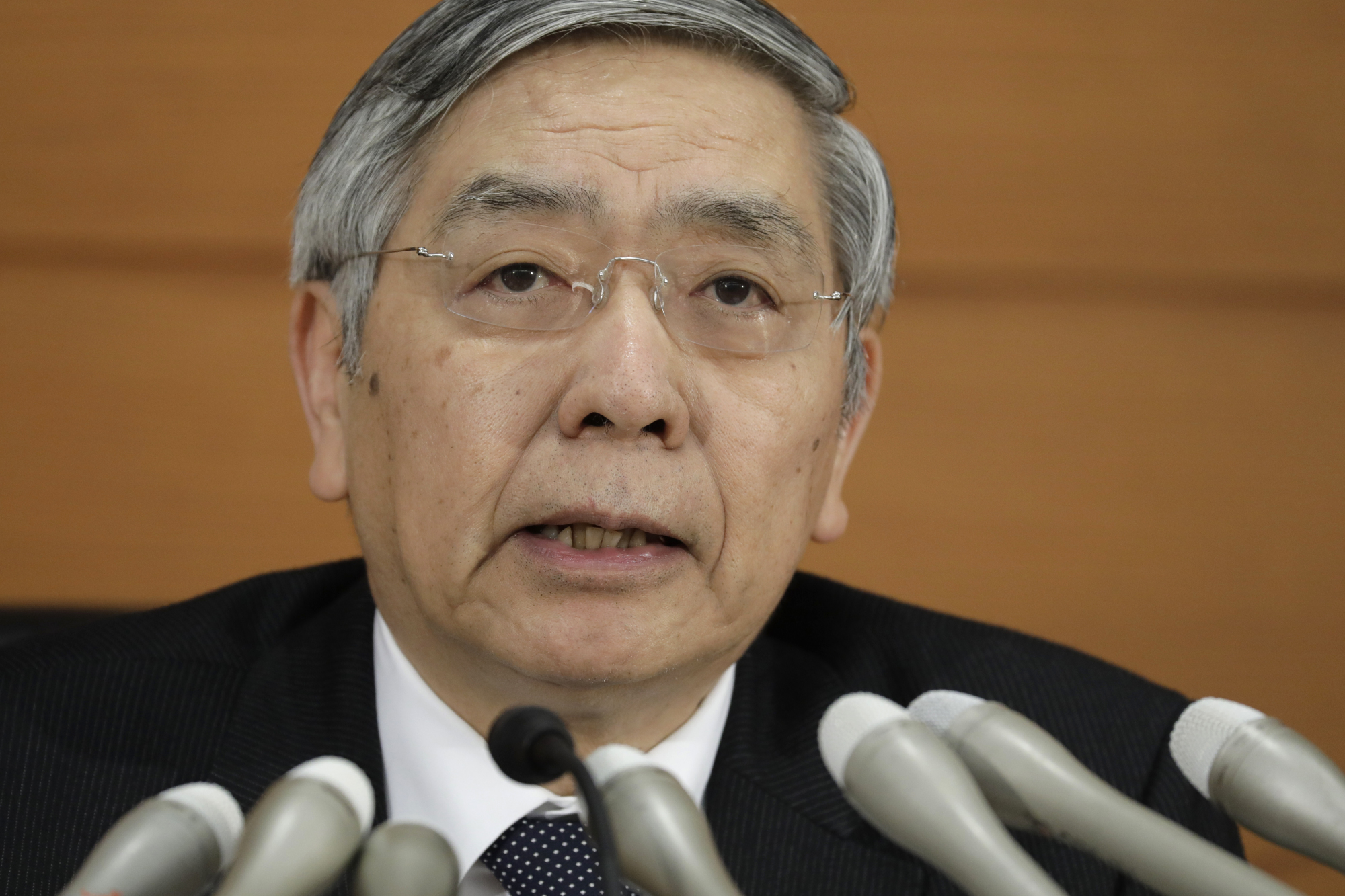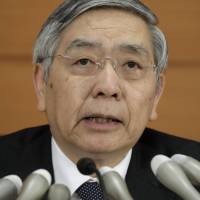The Bank of Japan's chief said Friday the central bank would not raise its long-term government debt yield target despite upward pressure from recent rises in overseas interest rates.
The central bank's "monetary policy should be designed to achieve the price stability target of 2 percent, responding to the situation in Japan's economy," BOJ Gov. Haruhiko Kuroda said in a speech in Tokyo, referring to the central bank's 2 percent inflation goal.
"The bank will not raise the target level of the long-term interest rates just because of a rise in such rates in other countries," he added.
Last week at its policy meeting, the BOJ maintained its aggressive monetary easing program, after the U.S. Federal Reserve announced overnight its second rate hike since December.
In September last year, the BOJ adopted a yield-curve control policy, aimed at keeping the 10-year government debt yield near zero by adjusting the amount of its bond purchases. Yields move inversely to debt prices.
Should the Japan-U.S. interest rate gap widen, the yen would fall against the dollar, which may prompt more investors to sell safe-haven Japanese government bonds with demand surging for stocks of Japan's export-oriented manufacturers.
Expectations that the country's long-term interest rates will continue to rise are creating some doubts about whether the BOJ can maintain control of the long-term yield.
"In financial markets, some argue that the bank will have difficulties with Japanese government bond purchases in the future and lose its control over long-term interest rates eventually," Kuroda said.
"That will not happen. In fact, yield curve control is designed to be highly sustainable," he added.




